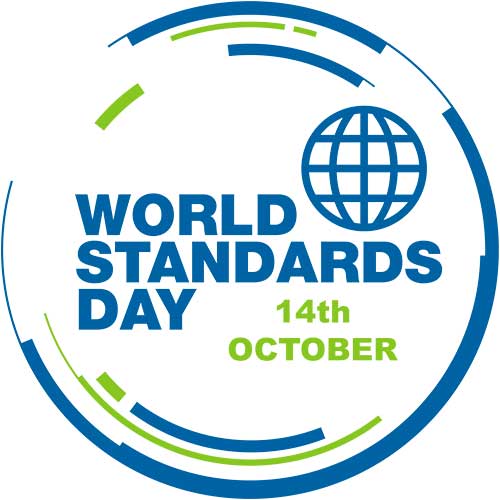
Introduction to World Standards Day
World Standards Day, celebrated annually on October 14th, honours the collaborative efforts of experts and organizations worldwide who develop international standards. These standards serve as a foundation for quality, safety, and efficiency in nearly every aspect of modern life, from technology and communication to health and environmental sustainability. The day emphasizes the critical role that standards play in facilitating global trade, promoting innovation, and ensuring that products and services are safe and reliable.
What Are International Standards?
At their core, international standards are agreed-upon guidelines that ensure consistency and safety across various industries. They provide a common language for businesses, governments, and organizations to follow, enabling products and services to be universally understood, manufactured, and maintained.
Definition and Purpose of Standards
Standards are technical documents that set out specific criteria to ensure that materials, products, processes, and services are fit for their purpose. They help ensure that quality, safety, efficiency, and interoperability are met across borders.
Examples of Common Standards
From everyday items like electrical outlets and Wi-Fi connectivity to advanced technologies like 5G networks and medical devices, international standards ensure that products work safely and efficiently. For example, the ISO 9001 standard is widely used to maintain quality management systems in businesses.
History and Significance of World Standards Day
World Standards Day was first celebrated in 1970 to raise awareness about the role of international standards in the global economy. It was established by the International Organization for Standardization (ISO), the International Electrotechnical Commission (IEC), and the International Telecommunication Union (ITU), three leading organizations responsible for creating and maintaining global standards.
The Role of ISO, IEC, and ITU
These organizations work together to create the standards that shape industries and technologies across the globe:
ISO focuses on developing standards for a wide range of industries, including quality management, manufacturing, and environmental sustainability.
IEC focuses on electrical, electronic, and related technologies.
ITU specializes in global telecommunication standards, ensuring smooth communication systems worldwide.
Why October 14th is Celebrated
October 14th marks the day when experts and professionals from around the world gather to acknowledge the importance of international standards and the role they play in ensuring safe, reliable, and efficient systems worldwide.
World Standards Day 2024 Theme
Every year, World Standards Day is celebrated with a specific theme to highlight the ongoing contributions of standards to global development. Although the 2024 theme is yet to be officially announced, past themes have focused on sustainability, innovation, and improving quality of life through standards.
Why International Standards Matter
The importance of international standards cannot be overstated, as they impact every aspect of modern life.
Ensuring Quality and Safety
Standards ensure that products and services meet basic safety and quality requirements. Whether it's a child's toy, a car, or a medical device, adhering to international standards guarantees that these items are safe for use.
Facilitating Global Trade
Standards are crucial for global trade, as they ensure that products from different countries can be used interchangeably and meet the same quality benchmarks. This helps reduce barriers to trade and fosters economic growth by allowing businesses to export and import products without concerns over compatibility or safety.
Supporting Innovation
Standards play a vital role in supporting innovation by providing a solid foundation for new technologies and products. They create a common framework that innovators can build upon, enabling faster adoption of new ideas and ensuring they are safe and compatible with existing systems.
Key Sectors Impacted by Standards
Standards have a broad impact on many industries, but a few sectors stand out in particular.
Technology and Communication
The technology and communication sectors rely heavily on standards to ensure that devices and systems can communicate seamlessly. Standards enable everything from internet connectivity to mobile phones and smart home devices to function smoothly on a global scale.
Health and Safety
In the healthcare sector, standards ensure the safety and effectiveness of medical devices, pharmaceutical products, and hospital procedures. From MRI machines to vaccines, standards ensure that patients receive safe and effective care.
Environmental Protection
Environmental standards, such as ISO 14001, guide industries in reducing their environmental footprint. These standards are essential in promoting sustainable practices, conserving resources, and reducing pollution worldwide.
How Standards Improve Global Cooperation
One of the most powerful aspects of international standards is their ability to harmonize practices across borders, creating a shared understanding among nations.
Harmonization Across Borders
Countries can collaborate more effectively by following the same standards. Standards also make it easier for companies to enter new markets because their products and services are already compliant with international requirements.
Ensuring Interoperability
Interoperability is essential in sectors like telecommunications and technology, where different systems need to work together. Standards ensure that devices, networks, and platforms from different manufacturers and countries are compatible, allowing for global connectivity.
The Role of the International Organization for Standardization (ISO)
The International Organization for Standardization (ISO) is central to creating standards that influence almost every industry.
Overview of ISO
ISO is an independent, non-governmental organization with members from 167 countries. It brings together experts to share knowledge and develop voluntary, consensus-based, market-relevant international standards.
How ISO Develops Standards
ISO develops standards through a collaborative process that includes international experts and stakeholders. These standards are reviewed and updated regularly to ensure they remain relevant to modern industries and technologies.
International Electrotechnical Commission (IEC) and Its Impact
The IEC is responsible for creating standards in electrical and electronic technologies.
Focus on Electrical and Electronic Standards
The IEC’s standards ensure the safety, efficiency, and reliability of electrical devices and systems. From power generation to consumer electronics, IEC standards help create the infrastructure that powers modern life.
Contributions to Global Innovation
By setting standards for electrical and electronic technologies, the IEC helps drive innovation in industries like renewable energy, smart grids, and electric vehicles.
International Telecommunication Union (ITU) and Communication Standards
The ITU plays a key role in global communication standards, particularly in the digital and telecommunication space.
Setting Standards for Global Communication
The ITU is responsible for the global standards that govern telecommunication systems, including radio, satellite, internet, and mobile communications.
Importance in the Digital Age
As the world becomes increasingly interconnected, the ITU’s standards are crucial in ensuring that communication networks are secure, reliable, and accessible to everyone.
The Importance of Standards for Sustainable Development
Standards also play a significant role in promoting sustainable development and addressing environmental challenges.
Standards for Energy Efficiency
Many standards, like ISO 50001 for energy management, help businesses reduce energy consumption, cut costs, and minimize environmental impact.
Reducing Environmental Impact
By adopting environmental standards, industries can operate more sustainably, reduce waste, and lower emissions, contributing to global efforts to combat climate change.
How World Standards Day Is Celebrated
World Standards Day is celebrated globally with various events that emphasize the importance of standards.
Events and Conferences
Conferences, workshops, and seminars are held around the world to discuss the role of standards in advancing technology, safety, and sustainability.
Awards and Recognitions
Awards are often given to individuals and organizations that have made significant contributions to the development of international standards, highlighting their efforts to improve global systems.
The Role of Governments and Industries in Upholding Standards
Governments and industries are key players in implementing and upholding standards.
Government Adoption of Standards
Many governments adopt international standards to guide policy and regulation, ensuring that industries comply with best practices in safety, quality, and environmental responsibility.
Industry Compliance and Innovation
Industries rely on standards to ensure the quality of their products and services while also pushing the boundaries of innovation. Compliance with standards helps companies gain consumer trust and compete in the global market.
Challenges in Implementing International Standards
Despite their benefits, implementing international standards can present challenges.
Complexity in Global Adoption
Some countries may face challenges in adopting international standards due to differences in local regulations or limited resources. This can lead to inconsistencies in how standards are applied across regions.
Balancing Innovation and Regulation
While standards provide a framework for consistency, there is always a balance to be struck between fostering innovation and adhering to established guidelines. Some industries may view standards as restrictive, while others see them as enablers of safe and effective innovation.
How Individuals Can Contribute to Standards Awareness
You don’t have to be an expert to appreciate the importance of standards.
Understanding the Impact of Standards on Daily Life
Take a moment to consider how standards affect your daily life, from the electrical outlets in your home to the products you buy. Understanding these impacts can foster a greater appreciation for the systems that keep us safe and connected.
Promoting Awareness Through Education
Sharing information about World Standards Day and the importance of standards can help raise awareness. Educational initiatives in schools, universities, and workplaces can encourage more people to recognize the value of international standards.
Conclusion
World Standards Day is a celebration of the collaborative efforts that make our world safer, more efficient, and more interconnected. International standards play a vital role in ensuring quality, safety, and innovation across industries and countries. As we move forward, these standards will continue to support global progress, from environmental sustainability to technological advancements. By recognizing the importance of standards, we can contribute to a more harmonious, resilient world.
FAQs
1. What is the purpose of World Standards Day?
World Standards Day's purpose is to raise awareness about the importance of international standards in ensuring safety, quality, and efficiency in industries worldwide.
2. Why are international standards important?
International standards help ensure that products and services are safe, reliable, and of high quality, while also promoting global trade and supporting innovation.
3. Who develops international standards?
International standards are developed by organizations such as ISO, IEC, and ITU, with input from global experts and industry leaders.
4. How do standards impact daily life?
Standards affect nearly every aspect of daily life, from ensuring the safety of electrical devices to enabling global communication and promoting sustainability.
5. What is the theme of World Standards Day 2024?
The theme for World Standards Day 2024 has not yet been announced, but it will likely focus on global challenges such as sustainability or innovation.
#WorldStandardsDay #InternationalStandards #ISO



